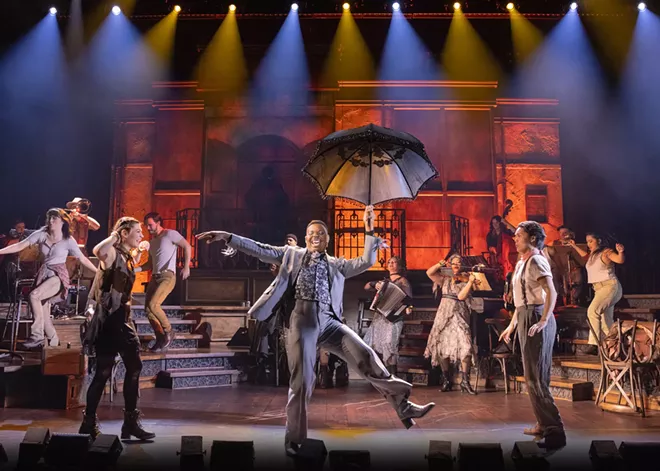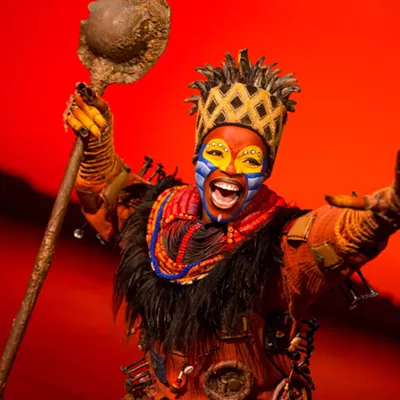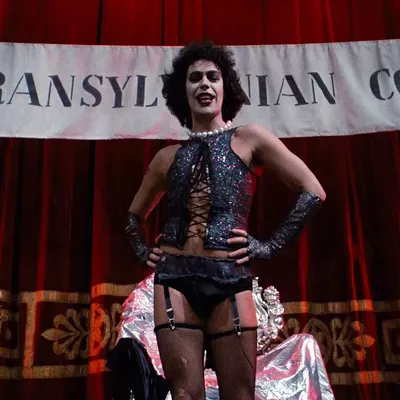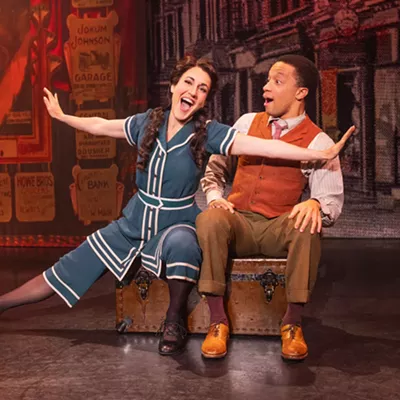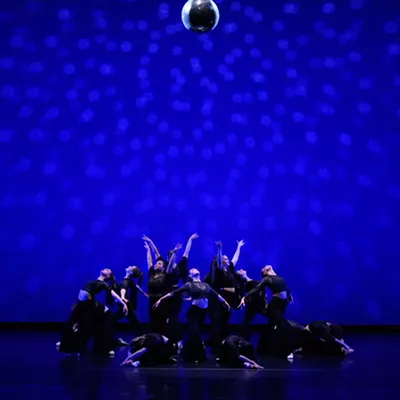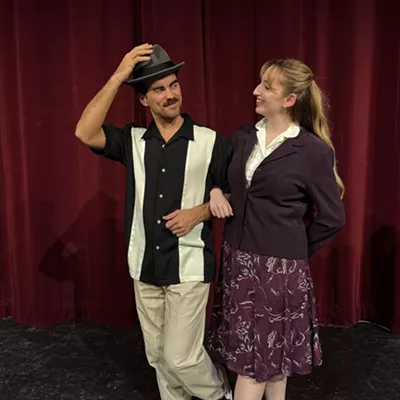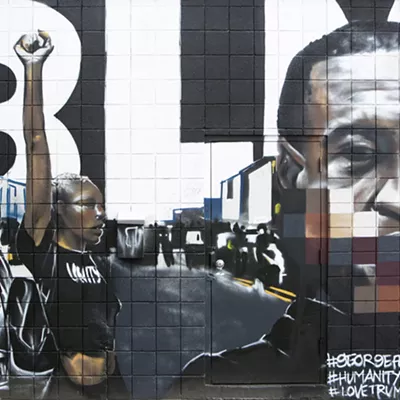What is love, if not a long road to tragedy?
That's a central message in the award-winning musical Hadestown by Anaïs Mitchell. From the very start the audience is told "It's a sad tale, it's a tragedy / We gonna sing it anyway." But then the story gets into the whole transcendental love plot, and the inevitable end is adeptly obscured for most of the show.
"I think love itself transcends the mortal plane. That's why there are so many songs and movies and books about love. Everybody is obsessed with this thing," says Bryan Munar, the actor playing Orpheus in the show's recent North American tour. "You know the only things that are guaranteed in life are death and taxes, and I think that's why we all search for something as elusive as love in stories like this."
Like many tragedies, Hadestown is inspired by an ancient Greek myth. In this case it's the myth of Orpheus, demigod son of the muse Calliope, and Eurydice, the beautiful woman (or nymph?) he falls in love with. As the story goes, the pair are happily married for a short time before Eurydice dies from a snakebite, marking her descent into Hades' underworld realm. Sometime after that, Orpheus makes the treacherous journey to the underworld to retrieve his bride with only his lyre in hand.
Once there, Orpheus plays a heartbreaking song that even touches the king of the underworld, convincing him to allow Eurydice to leave with her widow — under one condition, that is. Hades tells Orpheus that he must lead his bride out of the underworld without ever looking back on her. I'm sure you can tell where this is going. Moments before Orpheus reaches the exit, doubt sets in and he looks back on Eurydice, damning her to an eternity in Hades' realm.
In the modern-day musical, being performed in Spokane this weekend, the story is similar. Here, Orpheus (Munar) and Eurydice (Megan Colton) still fall in love, but now their characters are poor and hungry. As Eurydice struggles to even scrounge up a meal, she strikes a deal with Hades (Nickolaus Colón) for "freedom" down in Hadestown. Freedom from hunger. Freedom from poverty. Freedom from living.
One of the key differences from myth is that this musical also intertwines the rocky romance of Hades and his goddess wife, Persephone (Namisa Mdlalose Bizana), into the story. Persephone sees the true love she found at the beginning of her own relationship reflected in Orpheus and Eurydice, and ultimately convinces Hades to allow the young lovers to trek back to the realm of mortals.
Landing the role of Orpheus in this North American touring production was a pivotal point in Munar's career, but it was two or three years in the making and actually started with an audition for a role in the show's ensemble.
His first audition for Hadestown was to be one of the workers under Hades' control. Though he didn't get that role, Munar says the casting director recognized that he might have potential as the show's lead.
"I came in blind at first, but each time I auditioned it provided new pieces of the puzzle that led to my casting as Orpheus," he says. "I think they recognized from the beginning that I could carry a show."
As the son of a muse, Orpheus' musical talent is immense and innate. But in the real world, portraying a masterful musician is a demanding task. That vocal challenge, along with the character's unique entry into the world of musical protagonists, is what drew Munar to the lead role.
"I'm a vocalist, I've been singing most of my life, and I really want to be challenged in my work," Munar says. "I love that [Orpheus] is a character that you wouldn't normally see as a lead. He's not some strapping model, he's supposed to look and feel like someone hopeful and unique."
And among the small group of other actors who've played Orpheus since the musical opened in 2019, Munar thinks his portrayal is also unique. Instead of an attempt to make the character seem ethereal and godlike — playing on Orpheus' identity as a demigod muse — his performance showcases the character's human-like qualities.
Munar credits advice from the show's director, Keenan Tyler Oliphant, for infusing that sense of humanity into the character.
"Our director asks us to find an area in the middle of our characters and ourselves," Munar explains. "I'm always bringing all that I can to meet Orpheus where he's at in the story. It's really this sort of alchemy that Keenan expects of us."
There are plenty of shows that capture the messages of love and tragedy (Les Misérables, West Side Story and Mamma Mia!), or retell Greek myth (Antigone, The Lightning Thief and Mamma Mia! Here We Go Again?), but for Munar, Hadestown is unlike any musical.
"This is a show that transcends time and place, and it's even informing the way some musicals are being written," Munar says. "Truly, there's nothing like Hadestown." ♦
Hadestown • Sat, Dec. 21 at 7:30 pm; Sun, Dec. 22 at 1 pm and 6:30 pm • $54-$109 • First Interstate Center for the Arts • 334 W. Spokane Falls Blvd. • broadwayspokane.com

